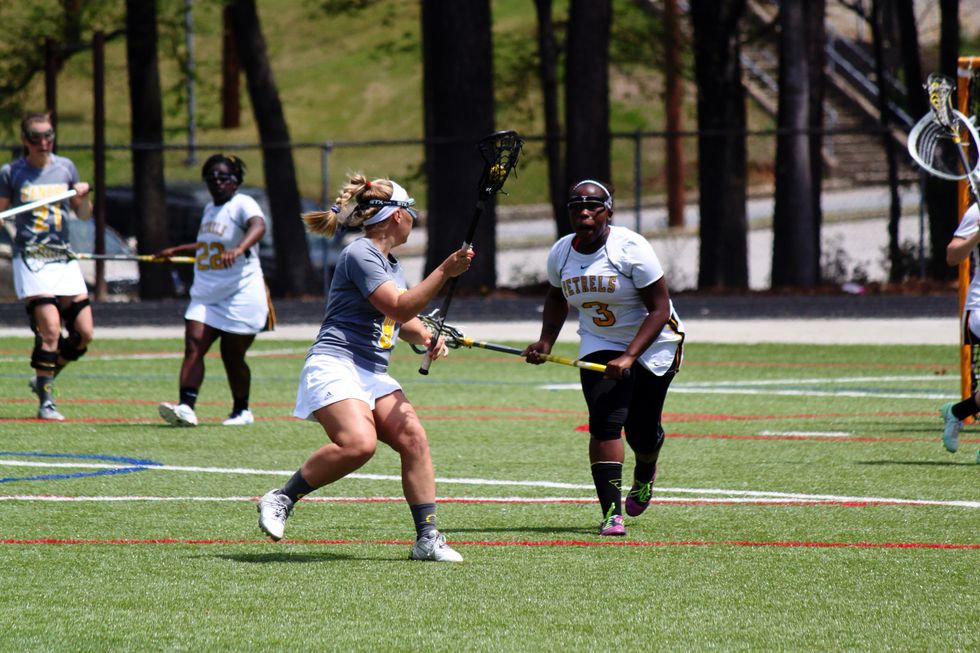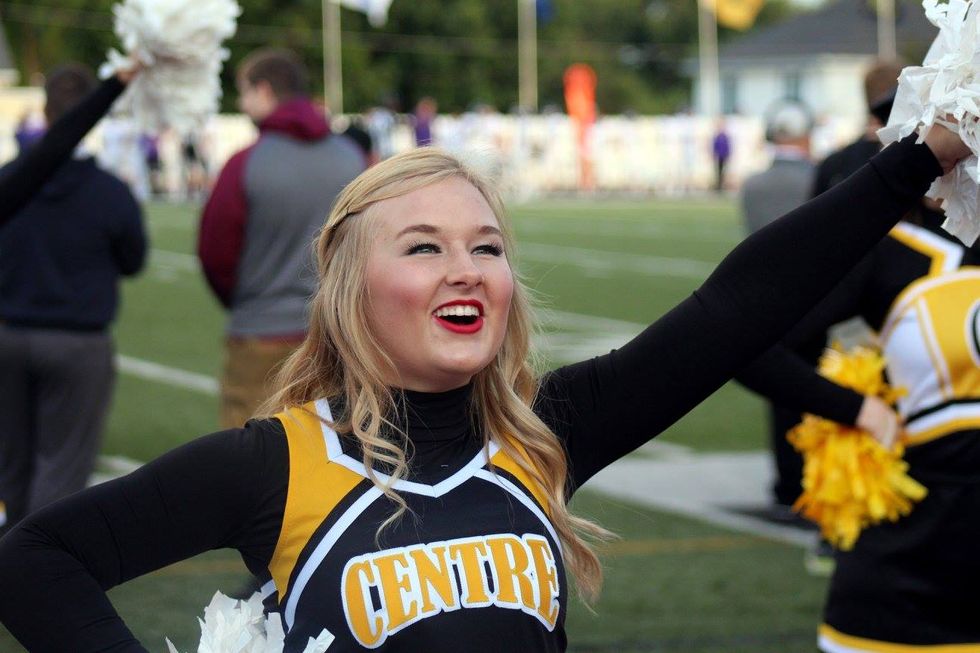The master cultural narrative has created several characteristics almost expected of men and women of the gender binary in society.
For the most part, I think my parents, particularly my mother, have done well to give me the best prospects to not let gender be a restraint on my movement through life including the workplace and athletics. When I was in grade school, people would often question why I had a boy’s name. It wasn’t until recently that the name Devin has become more widely accepted as a neither feminine nor masculine name. When I was born, my mom told me that she made the conscious decision to give me a more masculine name because she wanted to make sure that I wouldn’t be judged on paper by my gender. She wanted to be sure that I would be judged by my achievements instead of my gender.
In her mind, my name was supposed to combat the polarization we see in general life situations but particularly in the workplace. This relates back to Sheryl Sanberg’s book, "Lean In: Women, Work and the Will to Lead".
In the workplace, people are divided into groups. Sex segregation is an example of this in the workforce because men tend to hold CEO positions and labor intensive jobs whereas women hold jobs such as teachers, nurses, etc. My mother’s hopes for me were that I would be able to do whatever I wanted to with my life without having to worry about what my expected occupation was or what my anticipated path in life was.
In contrast to my non-feminine name, my parents did follow the master cultural narrative in that my nursery was adorned with pink, flowers, and dolls. I was dressed in dresses and ruffles, often with bows in my hair. As chapter 5 of Wharton’s "The Sociology of Gender" explains, assigning a child into a gender category (the traditional binary of male or female) leads into many other processes that help create a gendered individual.
As the text quotes:
“Male and female infants are similar to one another, but most adults go to great lengths to make them dissimilar.” Because of my name and the reasoning behind it, I don’t think my parents intended for me to grow up in an intentionally feminine environment but I do think they were victims of the master cultural narrative and thus I have been too.
Growing up, there have been several occasions where I have noticed that being female has been a disadvantage. For example, the first thing I decided I wanted to be when I grew up was a professional hockey player. Unfortunately, I was unable to do so. This reminds me of a film I saw recently, Girl Wrestler. Although the girl featured in the video was able to participate in competition and was relatively successful, she faced severe backlash from both men and women who believed she shouldn’t be able to participate at all for the same reasons I was told. With her success in wrestling, it obviously wasn’t too tough for her or too rough. I’m sure the case would have been the same for me if I we were able to find a way to play hockey.
As I grew up, I played several sports while my sister was much more into music and the arts. For my dad who played two collegiate sports and became a body builder, the portrayal of masculinity has always been a significant part of his life. He has lived life with the idea that the “tough guise” we learned about from a film in class must always be portrayed. As a masculine male, he must be strong, manly, and independent in order to be successful in the gender binary we have in the United States. Because I have no brothers, I’ve always been under the impression that my dad has made me his son when it comes to sports. From the age of about 10 when this was obvious, my dad has pushed me to be successful in athletics. The more I think about it, the more I think he wants me to take on the masculine roles that a son would take on. Just as No Way My Boys are Going to be Like That taught me boys grow up, the four rules of masculinity were applied to me: be courageous, be strong, be a risk taker, and don’t engage in sissy stuff. Now when I play sports I will always follow them because I have been conditioned to do so.
While I didn’t enjoy nor appreciate when he pushed me this way, I do now. Being both a cheerleader and a lacrosse player has allowed me two outlets for both my more feminine characteristics and my more so masculine characteristics. I benefit in lacrosse being able to hide my emotions, take pushes and contact, and portray confidence. The attitude my dad pushed me to have has actually helped me more than it has harmed me. At the same time, I’ve been able to portray another side of me in cheerleading which is one of more emphasized femininity. While cheerleading is a sport and it requires physical activity, we wear makeup, bows, have short skirts, and are there to provide entertainment for a predominantly male crowd.
When it comes to thinking about the future, there are several unknowns. Like most college kids, I think I know what kind of career path I would like to take but I’m sure this will change in the future. For now, my analysis will focus on what I currently anticipate will happen in the future.
My plan after college is to join the Peace Corps and teach English as a foreign language to children. I think this is in opposition to what expected feminine behaviors would entail. This requires independence and is a relatively bold move which would typically be related to masculine behaviors. However, the occupation of teaching itself is more feminine as Lean In: Women, Work and the Will to Lead has reminded us of the nurturing aspect of the job. I addition, I would like to have kids and would like to get married at some point which are also traditionally expected feminine goals and life plans.
Hopefully, when I have children, I am able to keep all of this in mind to allow my child to grow up in the way they would like to. While I know it is impossible to keep my children from learning the master cultural narrative, it is possible to not bow to to it. I think growing up with extremes in both femininity and masculinity has allowed me to turn certain characteristics on and off depending on the situation I’m placed in. I’m thankful for the experiences I have had which have shaped me into the uniquely gendered person that I am today.











































